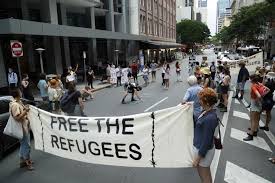Nigeria’s Ministry of Foreign Affairs has advised citizens planning to travel to Australia to consider developments in some cities. It has urged its citizens to report cases of discrimination, harassment, and verbal abuse targeted at foreigners following a rise in anti-semitic and Islamophobic hate crimes in Australia.
A statement by the Ministry signed by its Acting Spokesperson, Kimiebi Imomotimi Ebienfa, on Tuesday noted that while Australia is generally known for its multiculturalism and tolerance, incidents of Islamophobia and anti-semitism have occurred recently in certain areas.
It noted that “in early December 2024, a disturbing incident occurred in the Sydney suburb of Woollahra, where a car was set ablaze and sprayed anti-Israel graffiti on nearby buildings.
“This event is part of a broader increase in both anti-semitic and Islamophobic incidents in Australia, coinciding with international conflicts and tensions.
“Nigerians are, therefore, advised to be mindful of the prevailing cultural and social dynamics to ensure safety and comfort. To this end, extra vigilance and necessary precautions are strongly recommended.
There have been multiple instances of attacks on immigrants and refugees in Australia, including:
New anti-migrant laws
In November 2024, the Australian government passed a series of new laws that critics say are an attack on refugee and migrant communities. The rules allow the government to:
The Australian government passed new laws that expand the country’s offshore detention regime, further evade international obligations, and allow officials to pursue prison terms for people who resist deportation, including asylum seekers.
These laws undermine the core principles of refugee protection and mark an escalation in Australia’s existing mistreatment of refugees, migrants, and asylum seekers.
The legislation was introduced through the Migration Amendment (Removal and Other Measures) Bill, the Migration Amendment Bill, and the Migration Amendment (Prohibiting Items in Immigration Detention Facilities) Bill.
Under the new laws, the government now has the authority to pay third countries to accept noncitizens, including recognised refugees. Contrary to international standards, the rules do not require these countries to be parties to the Refugee Convention, nor do they include adequate safeguards to protect refugees from harm, detention abroad, or refoulement to countries where they may face persecution.


More Stories
Reps Bow to Pressure, Withdraw Compulsory Voting Bill
Nigeria’s Governors: Halfway to Where? (2)
Nigeria’s Governors: Halfway to Where? (1)